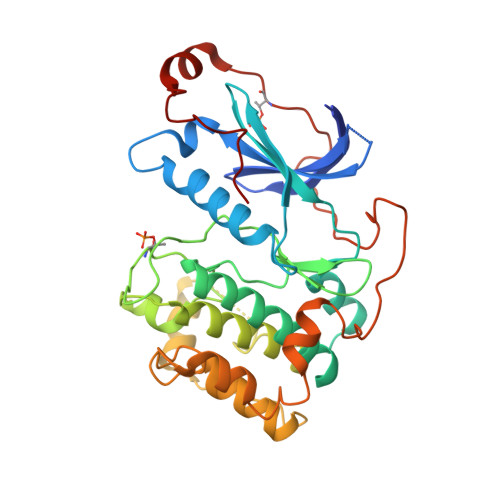Fragment-based Discovery of a Small-Molecule Protein Kinase C-iota Inhibitor Binding Post-kinase Domain Residues.
Kwiatkowski, J., Baburajendran, N., Poulsen, A., Liu, B., Tee, D.H.Y., Wong, Y.X., Poh, Z.Y., Ong, E.H., Dinie, N., Cherian, J., Jansson, A.E., Hill, J., Keller, T.H., Hung, A.W.(2019) ACS Med Chem Lett 10: 318-323
- PubMed: 30891133
- DOI: https://doi.org/10.1021/acsmedchemlett.8b00546
- Primary Citation of Related Structures:
6ILZ - PubMed Abstract:
The atypical protein kinase C-iota (PKC-ι) enzyme is implicated in various cancers and has been put forward as an attractive target for developing anticancer therapy. A high concentration biochemical screen identified pyridine fragment weakly inhibiting PKC-ι with IC 50 = 424 μM. Driven by structure-activity relationships and guided by docking hypothesis, the weakly bound fragment was eventually optimized into a potent inhibitor of PKC-ι (IC 50 = 270 nM). Through the course of the optimization, an intermediate compound was crystallized with the protein, and careful analysis of the X-ray crystal structure revealed a unique binding mode involving the post-kinase domain (C-terminal tail) of PKC-ι.
- Experimental Therapeutics Centre, Agency for Science, Technology and Research (ASTAR), 11 Biopolis Way, Helios #03-10/11, Singapore 138667, Singapore.
Organizational Affiliation:


















